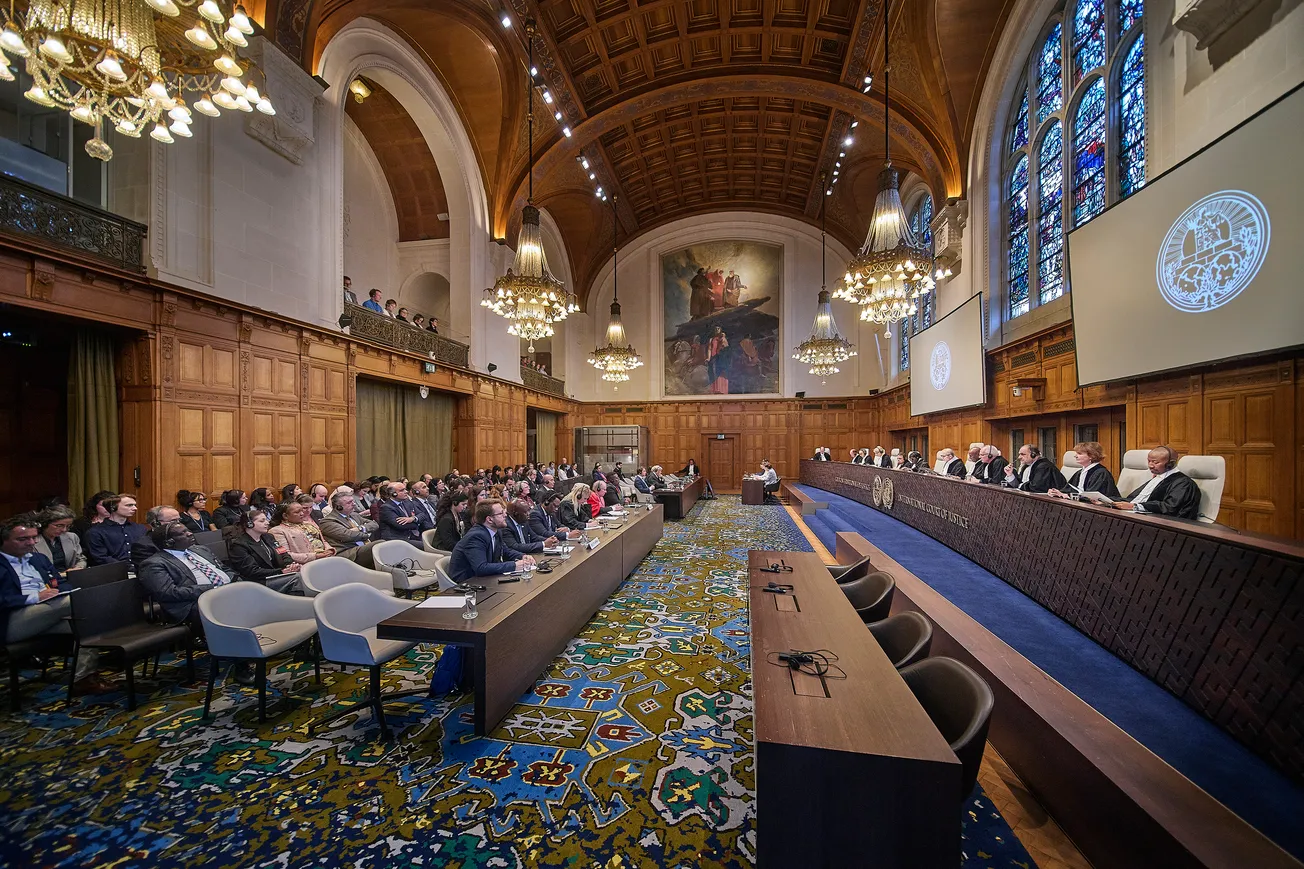The United Nations’ International Court of Justice issued new orders today in its ongoing case on South Africa’s charge of genocide by Israel in Gaza, ordering that Israel must immediately withdraw its military from the Rafah Governorate in Gaza, and must immediately open the Rafah crossing to Egypt and maximize the provision of humanitarian aid into Gaza.
Israeli War Cabinet member Benny Gantz called U.S. Secretary of State Antony Blinken on Friday afternoon, May 24, and then issued a statement, which said, in part: Israel is “obligated to continue fighting to return its hostages and ensure the safety of its citizens, at any time and place—including in Rafah.” The U.S. State Department has not yet issued a statement. On Friday morning before the Court’s order, the Washington Post had reported the Biden Administration “straddling its own red line” by deciding to describe any level of Israel Defense Forces (IDF) attack in Rafah as being “restricted.”
Thus it appears that Israel and the United States, both signatories to the Charter of the United Nations which established the International Court of Justice as the principal judicial organ of the United Nations, intend to defy its orders and continue mass killing of Gaza’s population.
Moreover, Israel’s Judge Aharon Barak—one of two ICJ judges who voted against the orders—claimed in an opinion that the orders do not actually mean that the Israel Defense Forces (IDF) must be withdrawn from Rafah “as long as it fulfills its obligations under the Genocide Convention”; and the German and Romanian judges (those from NATO countries), who voted for the orders, stated agreement with Barak’s “non-binding” interpretation of the World Court order.
Some critical sections of the World Court’s 13-2 decision follow:
Section “28. The Court notes that the catastrophic humanitarian situation in the Gaza Strip which, as stated in its Order of 26 January 2024, was at serious risk of deteriorating, has deteriorated, and has done so even further since the Court adopted its Order of 28 March 2024. In this regard, the Court observes that the concerns that it expressed in its decision communicated to the Parties on 16 February 2024 with respect to the developments in Rafah have materialized, and that the humanitarian situation is now to be characterized as disastrous. After weeks of intensification of military bombardments of Rafah, where more than a million Palestinians had fled as a result of Israeli evacuation orders covering more than three quarters of Gaza’s entire territory, on 6 May 2024, nearly 100,000 Palestinians were ordered by Israel to evacuate the eastern portion of Rafah and relocate to the Al-Mawasi and Khan Younis areas ahead of a planned military offensive. The military ground offensive in Rafah, which Israel started on 7 May 2024, is still ongoing and has led to new evacuation orders. As a result, according to United Nations reports, nearly 800,000 people have been displaced from Rafah as of 18 May 2024.
“29. The Court considers that the above-mentioned developments, which are exceptionally grave, in particular the military offensive in Rafah and the resulting repeated large-scale displacement of the already extremely vulnerable Palestinian population in the Gaza Strip, constitute a change in the situation within the meaning of Article 76 of the Rules of Court.”
“46. [partial] On the basis of the information before it, the Court is not convinced that the evacuation efforts and related measures that Israel affirms to have undertaken to enhance the security of civilians in the Gaza Strip, and in particular those recently displaced from the Rafah Governorate, are sufficient to alleviate the immense risk to which the Palestinian population is exposed as a result of the military offensive in Rafah….
“47. In light of the considerations set out above, and taking account of the provisional measures indicated in its Orders of 26 January 2024 and 28 March 2024, the Court finds that the current situation arising from Israel’s military offensive in Rafah entails a further risk of irreparable prejudice to the plausible rights claimed by South Africa and that there is urgency, in the sense that there exists a real and imminent risk that such prejudice will be caused before the Court gives its final decision….
“50. The Court considers that, in conformity with its obligations under the Genocide Convention, Israel must immediately halt its military offensive, and any other action in the Rafah Governorate, which may inflict on the Palestinian group in Gaza conditions of life that could bring about its physical destruction in whole or in part.”




